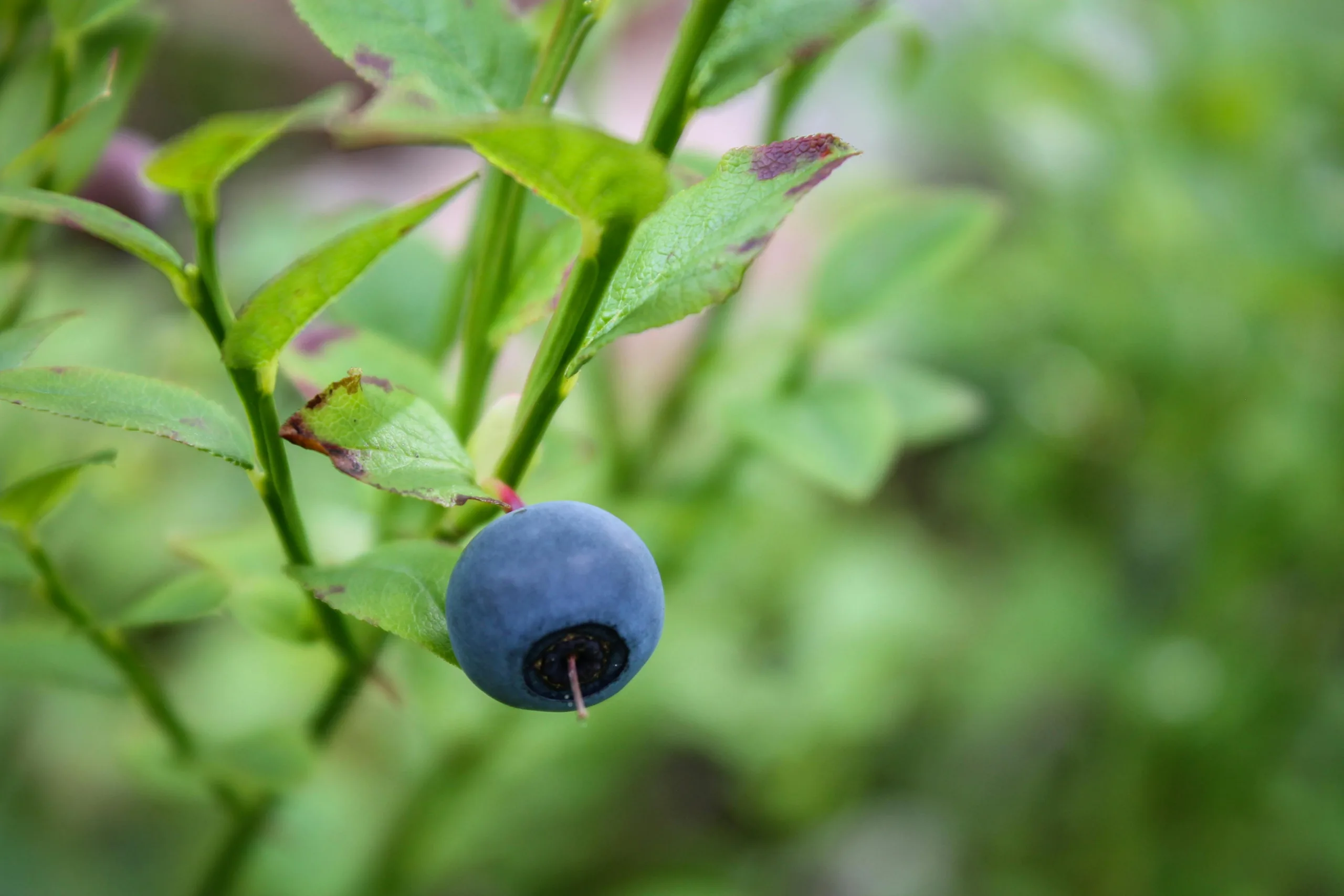Have you ever wondered how a plant defends itself? It can’t exactly run away when confronted with a predator! A healthy plant is equipped to deal with all kinds of threats – and this ability to defend itself may confer a benefit not only to the plant but also to those who consume it. In this article, we’ll look at how pterostilbene’s (pronounced tero-STILL-bean) powerful anti-oxidant ability can support human health.
The Shikimate Pathway and Pterostilbene
Pterostilbene belongs to a fascinating group of natural compounds called stilbenoids. Found in many plants, these antimicrobial compounds are known for their diverse biological activities and health benefits. Resveratrol is a well-known stilbenoid.
Some stilbenoids, including pterostilbene, act as phytoalexins. These are chemicals produced by plants to defend themselves in response to stress. That stress might be caused by the presence of bacteria, a virus or fungal infection, or even too much UV radiation.
The shikimate pathway is a vital metabolic process in plants. It acts like a biochemical production plant, using simple sugars to create various aromatic compounds essential for the organism’s growth and development.
While not directly involved in plant defense, the shikimate pathway provides precursors for secondary metabolites (such as phenolic acids and flavonoids) that help the plant defend itself against pathogens like bacteria and fungi. Pterostilbene is not produced directly in this pathway. Rather, it is a byproduct of the process, following some enzymatic side reactions.
Pterostilbene: A Powerful Antioxidant
Pterostilbene is found primarily in blueberries and a tree known as heartwood (Pterocarpus marsupium) (1). Peanuts and grapes, especially red grapes, also contain smaller amounts of this compound.
We know that free radicals can be serious troublemakers when it comes to our health. Excess can lead to cell damage, culminating in chronic conditions such as heart disease, cancer, neurodegenerative disorders, and more. Antioxidants protect the body by reducing the volume of free radicals.
Pterostilbene’s chemical structure allows it to neutralize free radicals and minimize the damage they cause. It also helps reduce inflammation, and it may have anti-cancer properties as well.
Potential Health Benefits
Research suggests pterostilbene may have some exciting health benefits.
Cancer Prevention
Laboratory and animal studies have demonstrated pterostilbene’s potential anti-cancer properties, most likely due to its ability to reduce inflammation and keep free radicals in check.
For example, many laboratory studies have found that pterostilbene inhibited the growth of breast cancer cells (1). Researchers suggest two possible mechanisms: preventing the uncontrolled replication of the cells and triggering apoptosis (programmed cell death). In studies done on cancer cells (in vitro), pterostilbene inhibited the growth of numerous types of tumour cells including stomach, colon, prostate, melanoma, and several others (2). This has not, however, translated into any large-scale randomized human clinical trials.
Cardiovascular Support
Numerous studies have shown that blueberries and pterostilbene may help protect the body against cardiovascular disease as well as atherosclerosis. Early research indicates that it might influence cholesterol metabolism, potentially lowering LDL (“bad”) cholesterol and increasing HDL (“good”) cholesterol (3).
Oxidative stress is a major factor in both blood vessel damage and the formation of plaque in the arteries. This can lead to an increase in strokes and heart attacks. Pterostilbene’s ability to fight free radicals may help to reduce oxidative stress, and in so doing protect a person from developing cardiovascular disease (3).
Blood Sugar Level Control
Diabetes is another area where pterostilbene has shown some promising results in laboratory studies. Improving how cells respond to insulin can improve your health and lower your risk of Type 2 diabetes.
Studies suggest that pterostilbene may help improve insulin sensitivity and stimulate insulin secretion within the pancreas, which enables more effective management of blood sugar levels. This may provide some protection from complications of poorly controlled diabetes (1,2,3).
Brain Health
Oxidative stress and inflammation are linked to age-related cognitive decline as well as neurodegenerative conditions such as Alzheimer’s disease.
Increasing the activity of antioxidant enzymes such as superoxide dismutase (SOD) is one mechanism by which pterostilbene may help to bolster the brain’s natural defense against oxidative stress. Another mechanism that may be at play is the calming of signalling molecules involved in both inflammation and the activation of an immune response.
By reducing oxidative stress and inflammation, pterostilbene may create a less hostile environment for brain cells and potentially improve brain health.
Anti-Aging Properties
Polyphenols are known for their health benefits, especially when it comes to aging and age-related conditions such as cardiovascular disease, diabetes, neurodegenerative disorders, and arthritis. Pterostilbene belongs to the polyphenol family; in ageing studies, it has been shown to protect against the prominent features of ageing. These include oxidative stress, inflammation, the shortening of telomeres, and cell senescence (3).
Human Studies, Safety, and Dosing
One of the biggest challenges when it comes to pterostilbene is its bioavailability – in other words, how much gets absorbed and used by the body. This is because it’s not very soluble in water. Researchers are exploring ways to overcome this challenge by using nanoparticles, lipid-based encapsulation, and beads (3).
As a result, clinical trials on humans are limited and most of pterostilbene’s benefits have been observed in laboratory or animal studies. While it shows great promise, further research is needed to determine optimal dosing, drug interactions, and safety. (3)
References
-
McCormack D, McFadden D. A review of pterostilbene antioxidant activity and disease modification. Oxid Med Cell Longev. 2013;2013:575482. doi: 10.1155/2013/575482. Epub 2013 Apr 4. PMID: 23691264; PMCID: PMC3649683.
-
Liu Y, You Y, Lu J, Chen X, Yang Z. Recent Advances in Synthesis, Bioactivity, and Pharmacokinetics of Pterostilbene, an Important Analog of Resveratrol. Molecules. 2020 Nov 6;25(21):5166. doi: 10.3390/molecules25215166. PMID: 33171952; PMCID: PMC7664215.
-
Nagarajan S, Mohandas S, Ganesan K, Xu B, Ramkumar KM. New Insights into Dietary Pterostilbene: Sources, Metabolism, and Health Promotion Effects. Molecules. 2022 Sep 25;27(19):6316. doi: 10.3390/molecules27196316. PMID: 36234852; PMCID: PMC9571692.



![women [longevity live]](https://longevitylive.com/wp-content/uploads/2020/01/photo-of-women-walking-down-the-street-1116984-100x100.jpg)










